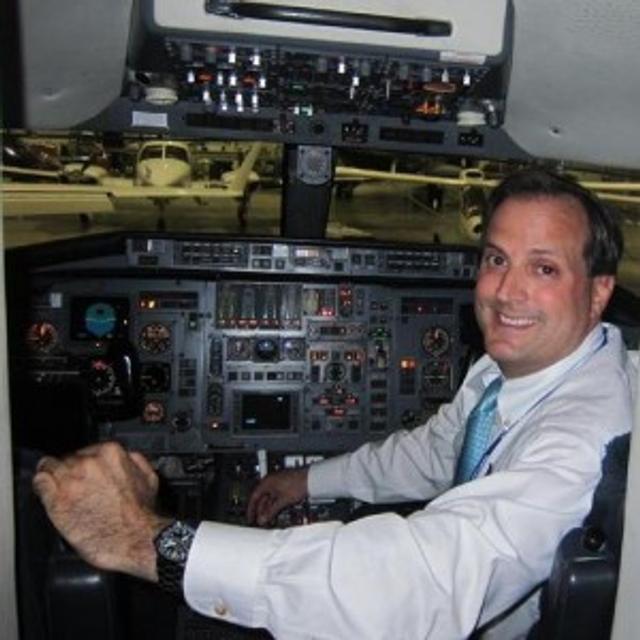

Corporate pilots are sometimes asked to sign pilot training contracts by their employers. But is signing one a good idea, something corporate pilots should do?
Is It You ... or Is It Me?
Some companies are bleeding pilots. This could be because they are not great companies to work for in the first place. So instead of providing incentives or improving workplace conditions to get their pilots to stay, they do the opposite. They threaten pilots with pilot training agreements. Of course, there are also unethical pilots who take advantage of training on their employer’s dime with no sense of loyalty. When they suddenly leave for a new opportunity, their employer is left holding the bag. A Pilot Training Contract for a newly hired pilot is an agreement to pay back expensive pilot training if the pilot leaves the employer. These are also often called Promissory Notes, which are easier to enforce legally. A post-employment agreement, or a Training Contract presented after you are already employed with a company, should always be considered carefully. So when should you sign, if ever?
Joseph Michael Lamonaca, Esq, ATP Principal, National and International Pilot Defense Aviation Law Firm
We showed Joe Lamonaca, professional aviation attorney, a Pilot Training Agreement and Promissory Judgement Note one of our pilots had received post-employment. Joe has been a lawyer for 23 years and a pilot for 30. He’s an accomplished attorney, but his first love is flying. As a professional airline transport pilot (ATP), turbine/jet type rated, he fully understands the needs of his clients from his professional pilot experience, and his experience as an instructor at Flight Safety International (FSI). He is also an appointed Federal Aviation Administration Lead Safety Representative, and was the FAA Safety Counselor of the Year 2007 through October 2008.
Joe's Advice Regarding Pilot Training Agreements
“Pilots should always carefully consider signing a post-employment agreement. Some Training Contracts I have seen contain what is called a Confession of Judgement, or COJ. By signing this type of agreement or contract, the pilot is allowing the holder of the agreement to produce it to a court for a judgment without a hearing by default. Procedures vary by state and jurisdiction, but I never advise anyone to confess judgment.” Most states won’t allow your employer to hold your paycheck if you leave your job or are let go for refusal to sign a Training Contract, because by law most states cannot garnish wages unless a pilot:
- owes training money, or
- has equipment that needs to be turned in.
If you are presented with a Training Agreement post-employment, your employer could fire you if you refuse to sign it. Your employer can change internal policies or the terms of your employment at any time. Joe says, “If you receive a training agreement, the ball really is in your court.”
What’s fair?
Generally speaking, your employer is responsible for training that is required for you to perform your job duties. If you are presented with a Training Agreement either before you are hired or post-employment, have an attorney who specializes in aviation law look at it before you sign. If you have already signed a Training Agreement but have a good attorney, you may be able to contest it in court. It is also always possible that when you were hired, your employer misrepresented your job duties to you. In this situation, say you had signed a Training Agreement, attended school and then started work. When you discovered that the job you were promised is completely different from the job you are now working, you could be trapped in a bad job — or left holding the bill for your training. To avoid this, your Training Agreement should always include a way for you to leave your job without having to pay back training if the job was misrepresented to you before you were hired. Make sure you document how the job was misrepresented — and make sure you never misrepresent yourself or your abilities to get the job in the first place.
Special Situations: Part 135 Charter Operators
If you fly for a Part 135 operator, your employer is required to have you attend specific classes and training courses so they can put you on their certificates to fly for them. If you already have an 8410 check ride from another operator, it will sometimes be accepted by the FAA, as long as the training vendor and the course curriculum are the same as the new operator’s requirements. If you are already qualified in the airplane you are being hired to fly, you should not have to sign a training contract just to meet their requirements.
Joe says: “The good news for pilots is that they are back in demand, and a training agreement can always be negotiated.” But be tactful. “Make sure you balance this with the message you are sending your aviation employer. Your employer simply wants you to stay for some term, so it is important that the message you convey is not one of uncertainty about staying or the position. It has to be of concern over signing any document that confesses judgment.”The Bottom Line on Pilot Training Agreements Try to understand your employer’s motives and point of view. But remember that a training agreement can have serious consequences for you as a pilot. Either don’t sign, or be sure your lawyer can add some criteria that allows you a way out.





